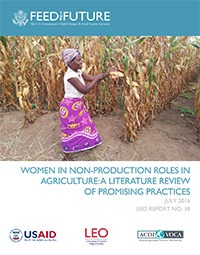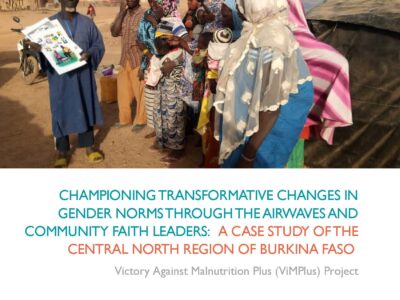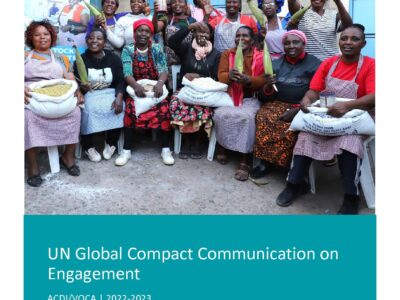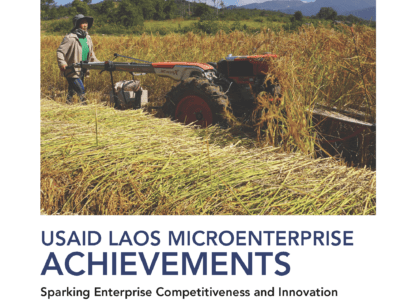
The USAID Feed the Future Initiative supports the development of agriculture as an engine of economic growth, food
security, and poverty reduction. Key to the success of this initiative is the empowerment of women, who play a vital role in
advancing agricultural development, food security, and nutritional outcomes. Much of Feed the Future’s agricultural
programmatic support to rural women thus far has been concentrated at the production stage. As a result, there is a wealth of information related to women’s economic empowerment through production, but there is limited available data related to best practices and promising approaches for women’s empowerment at other value chain levels.
This literature review aims to fill this knowledge gap by examining approaches to empower women or increase their incomes
in four phases of the value chain outside of production: input and service provision, post-harvest handling, processing, and the marketing of agricultural goods. While some of the women who are beneficiaries of the strategies discussed in this review are not engaged in agricultural production, many are farmers who also work at other levels of the value chain. Often, these
activities build on or add value to production interventions. The review focuses on three specific value chains: maize,
groundnut, and horticulture (defined as fruit and vegetable production). Projects span the continents of Africa, Asia, and Latin America.








